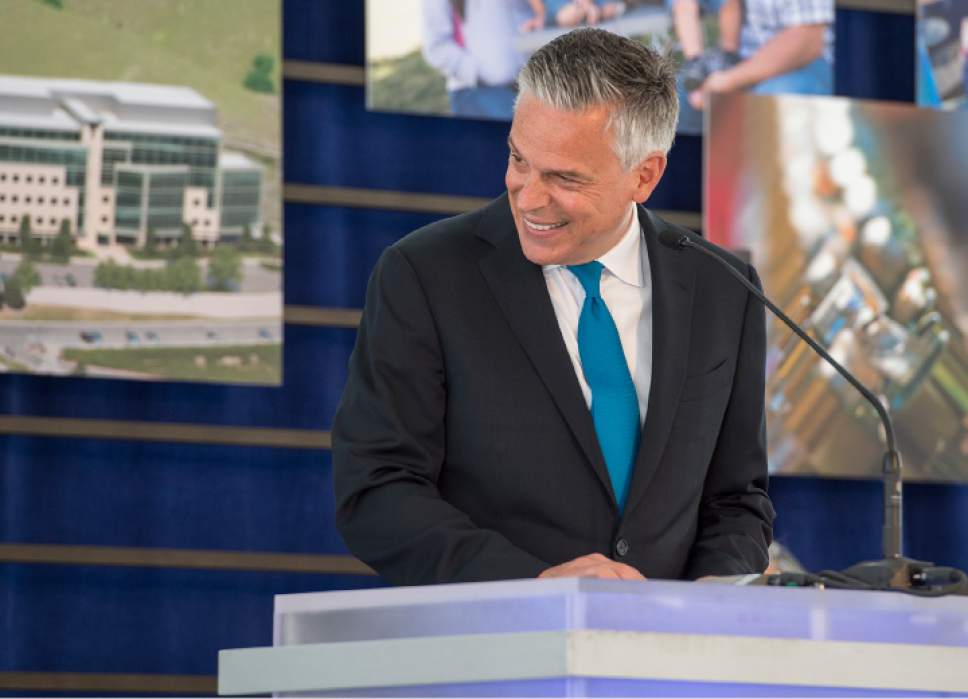This is an archived article that was published on sltrib.com in 2017, and information in the article may be outdated. It is provided only for personal research purposes and may not be reprinted.
Washington • Should he be confirmed, former Utah Gov. Jon Huntsman's role as U.S. ambassador to Russia could be even further hamstrung by actions Moscow took Friday to seize two U.S. properties in the country and limit the State Department's staff there.
Russia's foreign minister said in a statement Friday that U.S. officials are using "Russia's alleged interference" in last year's election as an "absolutely contrived excuse for its persevering and crude campaigns against Russia" and blasted new sanctions passed by Congress.
"The United States continues to pass more unlawful sanctions against Russia, to seize Russia's diplomatic property, which is formalized in binding bilateral documents, and to deport Russian diplomats," the foreign ministry said in a statement. "This is clearly a violation of the Vienna Convention on Diplomatic Relations and generally recognized diplomatic practices."
Moscow said it would limit U.S. officials in its country to the same number of Russian personnel in the Unites States — to 455, potentially a loss of hundreds of U.S. positions in Russia — as well as take over a storage facility and a country house used by the U.S. embassy. The Kremlin also said it "reserves the right" to take further steps.
President Donald Trump, whose team is under investigation for possible ties to Russia's meddling in the U.S. election, reportedly will sign the congressionally passed sanctions against Russia, but his predecessor, Barack Obama, had already expelled Russian officials from the United States and took over two Russian compounds inside America.
Huntsman, whom Trump as nominated as the United States' top envoy to Russia, is awaiting confirmation by the Senate but experts warn his job just got even more difficult as tensions between America and Russia heat up.
"The risk for Jon Huntsman if the relationship goes into the deep freeze is that he won't have much of a job to do," said Steve Sestanovich, a senior fellow at the Council on Foreign Relations who was the U.S. ambassador-at-large for the former Soviet Union during President Bill Clinton's last term. "Moscow can be a lonely place for an American ambassador if the Kremlin and the Foreign Ministry freeze him out. That would be a mistake for them, since in Huntsman they're getting somebody with exceptionally good Washington political connections."
Huntsman has served as U.S. ambassador to China and Singapore and as the deputy U.S. trade representative. He was a one-time presidential candidate.
Huntsman is not allowed, per tradition, to speak to the news media before his confirmation.
Former U.S. Ambassador to Russia Michael McFaul, who called Huntsman a "terrific choice" to take the job, tweeted on Friday that the Russian response is wrong.
"The United States did not interfere in Russian elections," McFaul said. "Russian government actions against our embassy, therefore, is unjust."
House Minority Whip Steny Hoyer said in a statement that Russia's actions to seize U.S. diplomatic property and expel State Department personnel "will not change the fact that Russia will face consequences for its interference in our election, its intervention in eastern Ukraine, and its illegal occupation of Crimea."
"The House and the Senate have now passed a tough sanctions bill by veto-proof margins, and it is incumbent upon the president to sign this legislation," Hoyer continued. "If he fails to do so, it would raise serious questions about why he would look the other way when it comes to a foreign adversary working to undermine American democracy and our interests around the world."
Editor's note: Former Gov. Jon Huntsman's brother, Paul Huntsman, is the owner and publisher of The Salt Lake Tribune.



